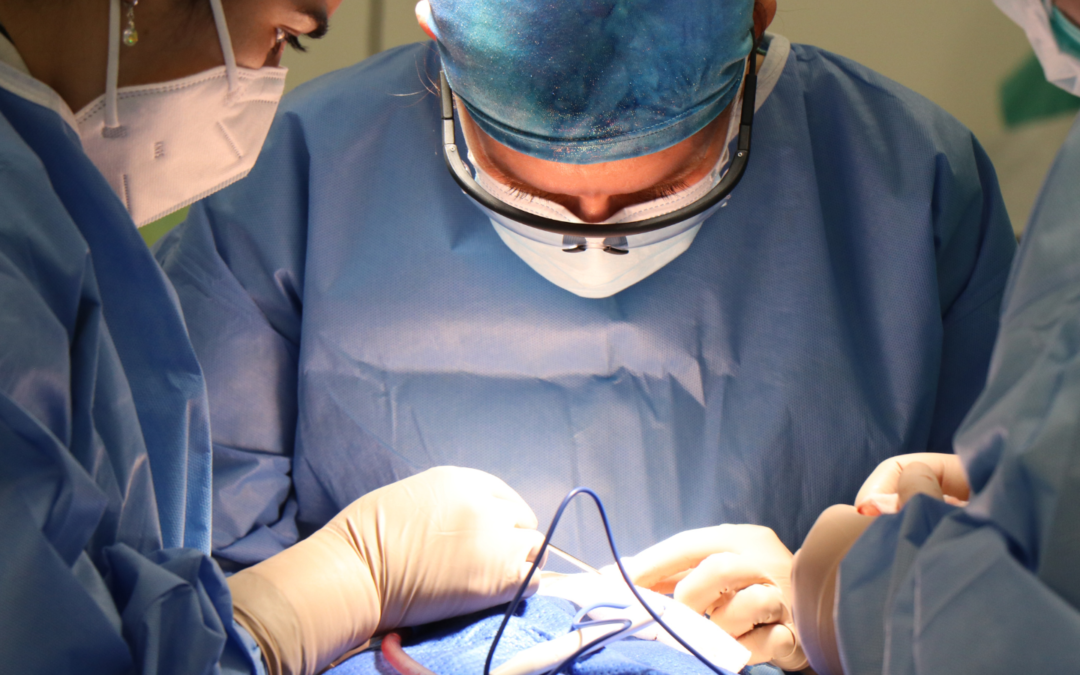When a patient undergoes surgery, they put their trust in their surgeon(s) and medical team that they are prepared and skilled and that their competency levels are high enough to achieve success. However, it is a fact that surgical mistakes (read our blog post on common surgical errors) do happen, but when they do, it does not necessarily mean that the errors constitute medical malpractice.
(Learn about the medical standard of care when pursuing your own medical malpractice claim.)
Medical malpractice does not account for every instance when a surgery is unsuccessful or when medical treatment goes wrong in some way or another. Medical treatment in question should adhere to a medical standard of care that is uniformly accepted by the medical industry. And even when it doesn’t, medical malpractice does not come into play unless the treatment causes patient harm.
The medical standard of care is generally a level of care that a typical, skilled, health care professional with an equal level of education and experience, would provide given the same or similar circumstances in the same environment.
All surgery offers a level of risk. Patients typically sign an informed consent form, which acknowledges the known risks involved, risks that are expected or anticipated. Surgical errors, however, are preventable mistakes made during surgery, and as such fall outside the realm of known risks involved in a surgical treatment and any undesirable results covered by the informed consent form.
Kinds of Surgical Mistakes that Lead to Medical Malpractice
Every surgery is different. The circumstances surrounding the procedure, the environment, the patient’s condition all add to the level of differentiation that creates uncertainty in surgical treatments. However, there are some common reasons why surgical errors do occur, and when seeking to determine if surgical errors have occurred, it helps to understand why they happen when they do. Here are common reasons that surgical errors often link back to in medical malpractice cases:
Incompetence of the Medical Professional – Surgeons sometimes lack the experience necessary for competency in specific surgical treatments simply because they have not had ample experience in performing those treatments. If that is the case, surgical errors can occur.
Insufficient Preparation – Obviously, surgeons must be prepared for surgical treatments. Poor preparation can cause complications during and following the surgery in question. Reviewing patient records and status, allergies, understanding the complexities involved in the procedure are all necessary to ensure success in any surgery. Surgeons, nurses and assistants all need to be properly prepared before the surgery takes place or life-threatening errors may occur.
Improper Work Process – Mistakes occur when surgeons fail to follow the proper procedure (eg. Taking shortcuts, etc.). Determining that standard steps typically taken during a common surgery are not necessary often opens the procedure up for errors that may cause patient harm.
Lack of Communication – When communication fails in a surgical procedure, errors are bound to occur. Ensuring the proper dosage of a patient’s medication, having the proper equipment on hand, even understanding the proper leg or arm on which to operate all hinge on proper communication.
Fatigue – One of the most common reasons for surgical errors, fatigue is a big problem in hospital settings, particularly in the emergency room. Incredibly long shifts produce crippling fatigue. Typically, doctors try to work through their fatigue. But the fact is that impairment that results from fatigue is much akin to the impairment attributed to alcohol consumption, and when a medical professional is impaired, it can result in surgical errors.
Neglect – Simply not being careful is all it takes for mistakes to happen in a surgical setting. Using defective surgical equipment, taking shortcuts, failing to ensure instruments are appropriately sterilized, these forms of neglect can lead to errors as quickly as anything else.
(When Amputations Result from Medical Malpractice)
If you’re looking for an experienced Chicago personal injury lawyer to help navigate your personal injury claim, we will fight assiduously for your right to the compensation you deserve. Call Bizzieri Law Offices at 773.881.9000. The case evaluation is free, and we never charge a fee unless we recover damages for you.

